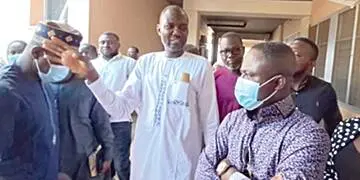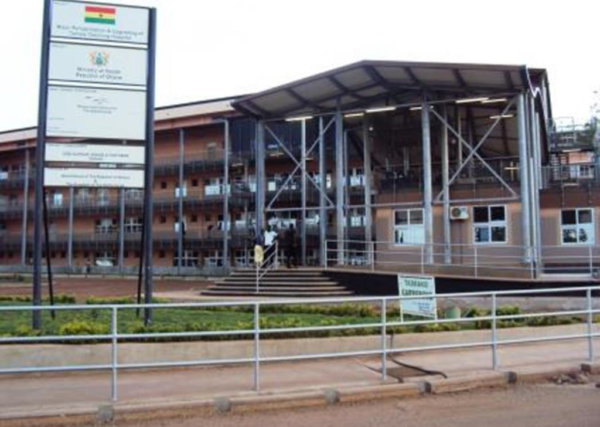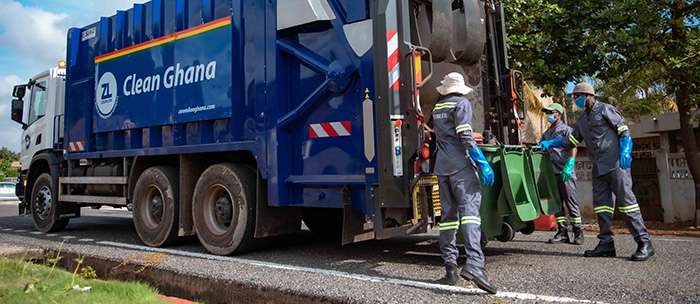In Ghana, it is common practice to blame politicians, bureaucrats, and policymakers for the failure of institutions.
However, what occurs when experts, equipped with information and a duty of care, say nothing while systems fall apart around them?
In his recent scathing criticism of the now-fired chief executive officer of the Tamale Teaching Hospital (TTH), Dr. Kwame Asiedu Sarpong, a renowned pharmacist and Democracy and Development Fellow in Public Health at the Ghana Centre for Democratic Development (CDD-Ghana), raised that crucial question.
Dr. Asiedu did not mince words as she spoke with conviction and clarity. He claimed that the former CEO should never have continued to run a failing hospital, particularly in light of growing evidence, some of which was made public, that the hospital’s operations were dire.
“That’s why I struggle to support the sacked CEO of the Tamale Teaching Hospital. Because all of us, including Richard [Salome], the president of the Pharmaceutical Society of Ghana, and the president of the GMA, have read this report”.
Dr Kwame Asiedu Sarpong, Pharmacist and CDD-Ghana in Public Health
His main point was centred on the Health Harmonisation Assessment Report, which was co-commissioned by the World Health Organization, the Ghana Health Service, the Ministry of Health, the Global Fund, and the Government of Ghana.
According to the report, which is a component of the WHO member states’ Holistic Assessment of Health Programs of Work, Ghana’s healthcare system is in terrible shape.

Health Professionals
One of the more startling findings, according to Dr. Asiedu, was that “only five percent of our consultation rooms have the requisite equipment to adequately diagnose a person.”
He claimed that the information is official and not anecdotal, and lamented that healthcare administrators and legislators have kept making significant investments in the construction of new hospitals while disregarding the deteriorating state of the existing ones.
“We jettisoned that report and went into building hospitals. That is what I say—that as health professionals, this is what we should be telling the policymakers and the ultimate spenders, which in this case is the Health Minister.”
Dr Kwame Asiedu Sarpong, Pharmacist and CDD-Ghana in Public Health

Professional Collusion
It is a damning indictment of professional collusion as well as political leadership. Dr. Asiedu’s strongest point is made here: those who are in the know, have access to reports and data, and continue to run or work in failing institutions without speaking out are equally responsible.
“If you make decisions which are at variance with what the health assessment reports say, then we should walk away. It’s as simple as that. Now you find yourself in confrontation with the Minister—I cannot support you. Because how did you sit down when those reports say what they say?”
Dr Kwame Asiedu Sarpong, Pharmacist and CDD-Ghana in Public Health
According to Dr. Asiedu, the failure is one of integrity rather than knowledge, asserting that, regardless of the abundance of evidence that shows alarming challenges, professionals always choose the easiest way out.
To him, the failure on the part of professionals to speak truth to power is not only a shirk of responsibilities but a betrayal of professional ethics.

In addition to being a betrayal of professional ethics, it is also a betrayal of Ghanaians, especially the weaker members of society who depend on public healthcare for survival.
Accordingly, Dr Asiedu Sarpong stressed that the issue is a deeper sickness of moral cowardice in the health sector rather than merely administrative errors or political agendas.
Dr. Asiedu’s call for introspection was perhaps the most telling aspect of his intervention. He was quick to admit that everyone is subject to criticism, even himself.
“That’s why I spoke out when those reports came out—to say nobody should be working under those facilities”.
Dr Kwame Asiedu Sarpong, Pharmacist and CDD-Ghana in Public Health
This goes beyond merely denouncing, as it is a call to action for health care workers throughout Ghana to stop hiding behind titles and begin acting with integrity.
While political leaders are often to blame for the country’s woes, Dr Sarpong advocated for a paradigm shift in ensuring each other’s accountability.
Because, as Dr. Asiedu’s passionate comments demonstrate, the real tragedy of Ghana’s healthcare crisis is not that we are unsure of what is wrong. It’s that far too many are aware of it and decide to keep quiet.
READ ALSO: When One Sin Scars a Nation, Let Not Another Rise from Ablekuma North





















